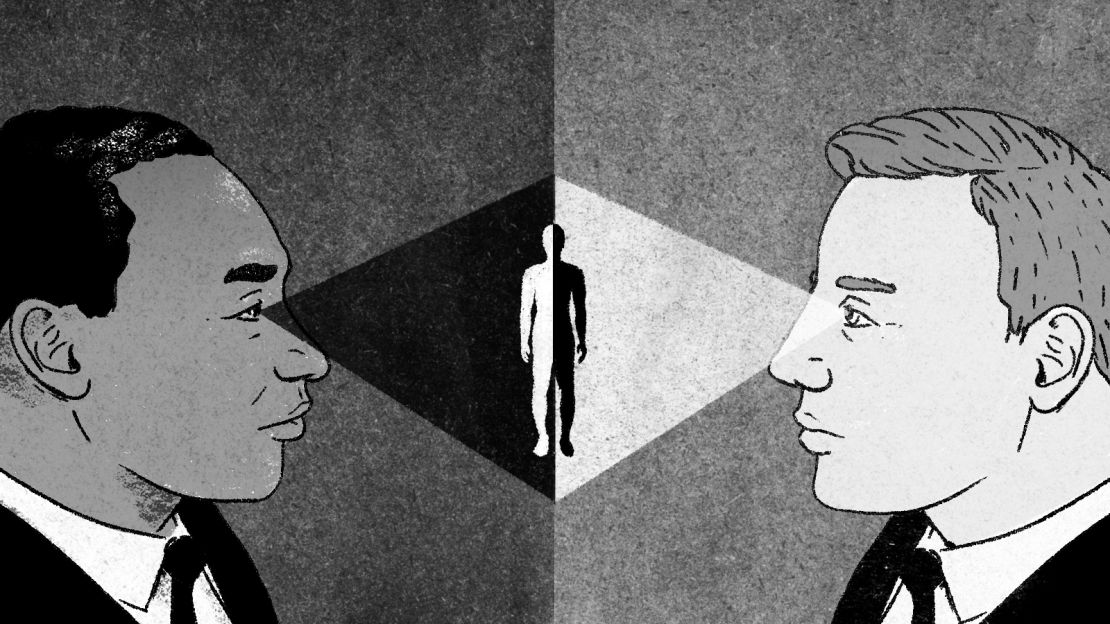Racism in America remains a profound and pressing concern, igniting discussions that traverse various facets of society, culture, and morality. It demands a contemplative examination through the lens of Bahá’í teachings, which advocate for the absolute unity of mankind. This exploration is not merely an academic endeavor; it is a heartfelt call to courageously confront the biases that have historically permeated social interactions and systemic structures. By weaving together the principles of Bahá’í faith with the contemporary narrative surrounding racism, we can forge pathways toward reconciliation and understanding, ultimately prompting a transformative shift in perspective.
The Bahá’í teachings poignantly assert that the core of humanity is intertwined. This principle is fundamental in addressing racism. It posits that any form of prejudice, including racial discrimination, undermines the very fabric of society. The belief in the oneness of mankind lays the groundwork for a collective responsibility towards fostering environments of acceptance, solidarity, and mutual respect. Consequently, engaging in discussions about racism is not merely a matter of social obligation; it is a spiritual imperative.
In any discourse on racism, it is vital to recognize the cultural narratives that shape our perceptions. The Bahá’í tradition emphasizes the importance of understanding history in order to facilitate healing. Acknowledging the legacy of racial injustice in the United States allows individuals to recognize the long-standing disparities that persist today. This acknowledgment is not intended to evoke feelings of guilt but rather to inspire empathy. Comprehending the lived experiences of marginalized communities fosters a connection that transcends superficial divides.
Education plays an indelible role in restructuring perceptions. The Bahá’í teachings advocate for a thorough and objective education about race relations, which extends beyond the surface-level understanding of historical events. Engaging with literature, art, and testimonies from diverse communities can imbue one’s consciousness with insights that challenge ingrained prejudices. This intellectual and emotional engagement cultivates a broader worldview, urging individuals to anticipate the richness that diversity bestows upon society.
Furthermore, one must explore the intersection of individual and collective action. The Bahá’í perspective encourages individuals to move beyond passive acknowledgment of racism. Instead, it advocates for an active commitment to dismantle discriminatory systems and behaviors. This commitment often necessitates uncomfortable conversations, yet such dialogues are indispensable for growth. It is essential to create safe spaces where honest discussions can occur, embracing vulnerability and the possibility of making mistakes along the way. A crucial tenet of the Bahá’í faith is the belief in the power of collective social action, which echoes the idea that change is seldom achieved in isolation.
As we examine the psychology behind racism, it becomes evident that fear often underpins xenophobia and prejudice. The Bahá’í teachings encourage overcoming fear through the cultivation of understanding and compassion. By fostering dialogues that explore the fears and insecurities associated with racial differences, individuals can confront the fears that lead to divisive attitudes. This process not only mitigates personal prejudices but also promotes societal healing, illustrating that humanity is, indeed, capable of evolution.
It’s imperative to consider the role of media and representation in shaping public perception of race. The Bahá’í teachings emphasize the significance of justice and equity; thus, the portrayal of diverse communities in media must reflect their multifaceted realities. An incomplete or biased representation serves to perpetuate stereotypes and deepen societal divides. By demanding fairness in media narratives and amplifying diverse voices, society can challenge prevailing preconceptions and promote a more equitable understanding of racial issues.
Moreover, the notion of unity does not negate individuality. Celebrating cultural diversity is pivotal within the Bahá’í framework. When addressing racism, it is essential to elevate the unique contributions of all racial and ethnic groups, thereby enriching the collective experience. This celebration of diversity should be reflected in education systems, workplaces, and community dialogues. Recognizing and valuing individual heritage within the context of a unified society can effectively counteract the homogenizing tendencies of racism.
To engender lasting change, we must confront systemic racism. The Bahá’í teachings advocate for collective efforts aimed at reforming societal structures that perpetuate inequality. By understanding that advocacy requires sustained commitment, individuals are urged to participate in movements that seek to reform unjust laws and policies. This activism requires not only courage but also the willingness to learn from the experiences of those who have suffered within these systems. Empathetic engagement becomes a catalyst for fostering systemic transformation.
Ultimately, the dialogue on racism, particularly within the framework of Bahá’í teachings, must be both introspective and communal. Humanity stands at a crossroads; the potential for transformation exists in our collective ability to foster a culture of dialogue, understanding, and most importantly, love. As members of a global society, acknowledging our shared history propels us towards a future characterized by unity and mutual respect.
The conversations regarding racism are not mere obligations; they represent opportunities for profound growth. As we engage with these discussions, we honor the fundamental truth encapsulated in the Bahá’í teachings: Our destiny is interlinked. Through this shared journey of recognition and reconciliation, we can cultivate a society that reflects the ideal of oneness, where diversity is not merely tolerated but celebrated. Encouraging curiosity and promoting open dialogue facilitates a deeper understanding and reinforces the ties that bind us. It is incumbent upon us to embrace this challenge—we must ask ourselves, are we prepared to engage fully in these vital discussions? The time has come to talk. Let us rise to the occasion and foster a society that embodies the principles of love, justice, and unity.
